Last year and into 2019, the UK’s parliamentary Environmental Audit Committee has been investigating the sustainability of the UK fashion industry, leading up to the final report which includes recommendations for the Government, who have two months to respond.
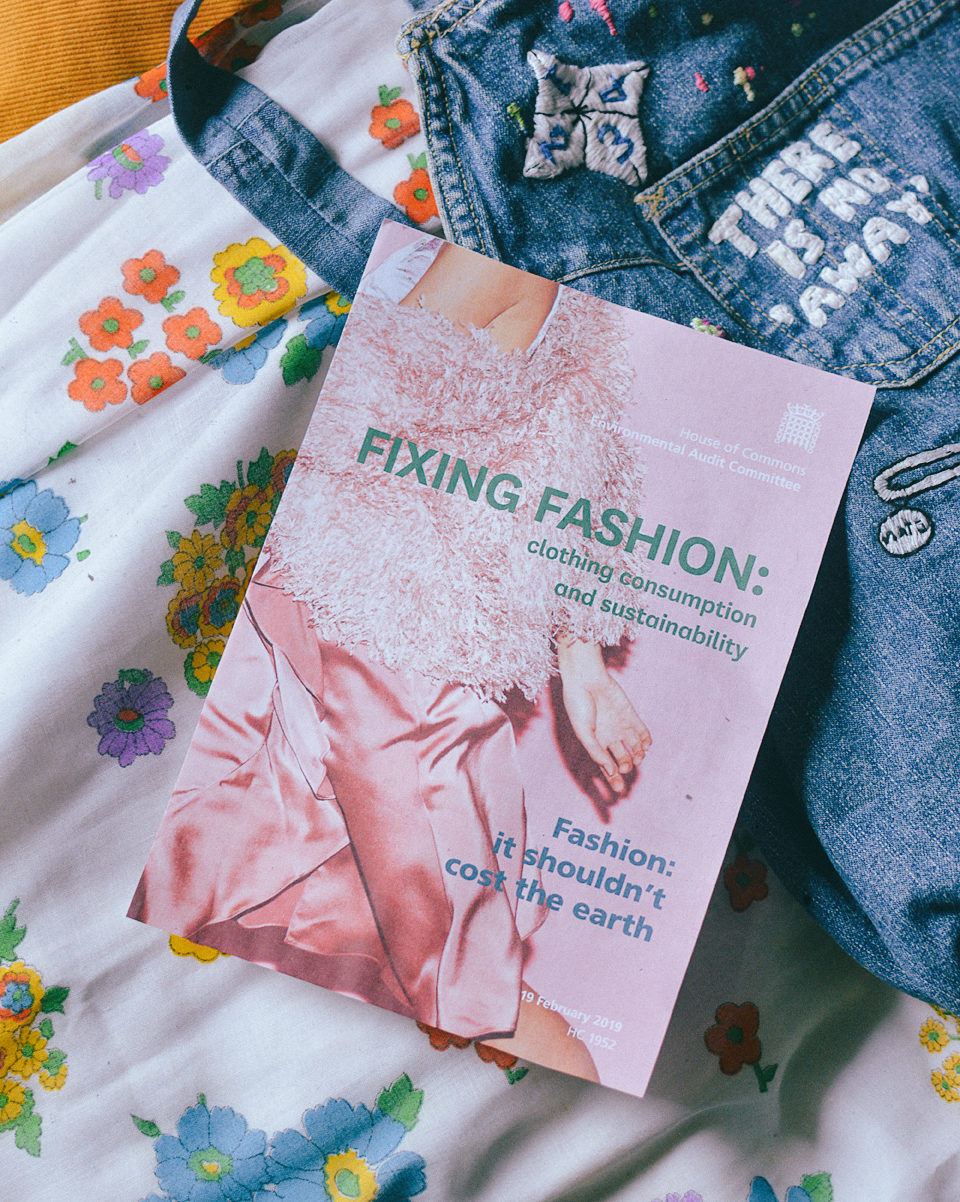
The Fixing Fashion report can be read in full, here.
For those of you who missed my initial piece on the inquiry, I would highly recommend going back to take a read. I interviewed Mary Creagh MP, who is the Chair of the Environmental Audit Committee. In the piece, I discussed the purpose of the inquiry and some of the main issues and concerns being raised as evidence was being put forward.
Now, after over six months, the final report – Fixing Fashion – has been released. Although the Government does have two months to respond, it is under no obligation to accept the recommendations suggested in the report – which would be a crushing blow, considering the fact that the majority of the issues raised throughout the inquiry haven’t exactly been surprising.
It would also be a defeat because, as the report states, in the UK, we are buying more clothes than any other European country; therefore, we are also responsible for a greater environmental impact, than any other European country – which of course, doesn’t just affect the UK, alone.
If you’re less aware of some of the key issues we’re facing when it comes to effects of fashion in the UK – specifically, fast-fashion -, here are some of the main facts to remember:
☛ An estimate of 1.13 million tonnes of clothing was bought in the UK in 2016
☛ Roughly 1.2 billion tonnes of CO2 emissions are created per year by textile production (which is more than international flights and maritime shipping put together)
☛ Less than 1% of clothing is recycled into new clothing at the end of its life
☛ WRAP estimates that £140 million worth of clothes end up in landfill every year
☛ Over 500 billion new t-shirts are projected to be produced by 2030
All statistics and quotes in this piece were taken from the full report by the EAC.
And although there might not be a specific statistic or piece of data to show for it, we also know that transparency within the industry is a factor that plays a part too; sustainability and ethics-wise.
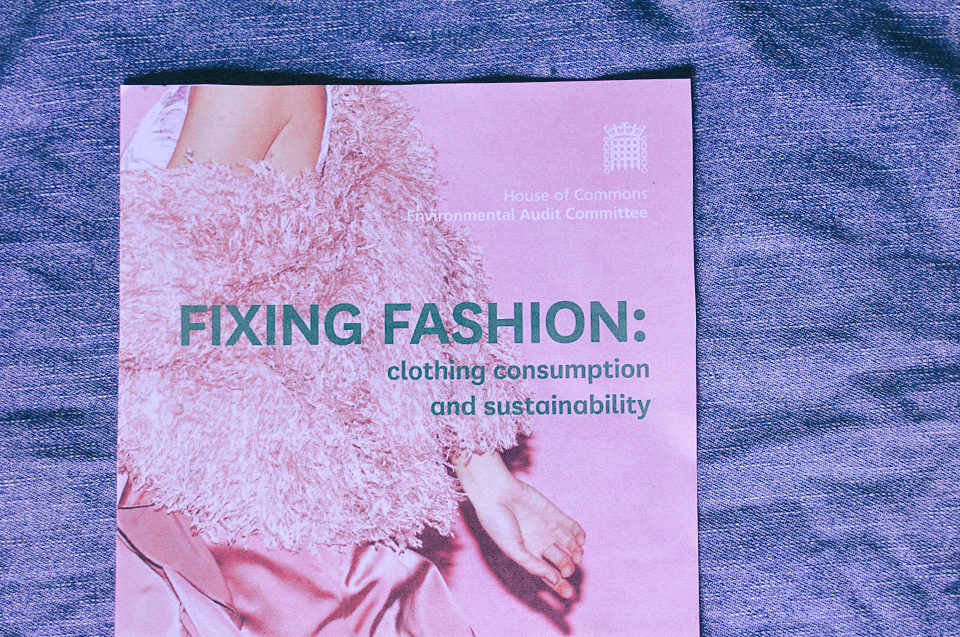
For example, in the report, Boohoo (or Boohoo Group), stated that they do not see the benefits of joining the ETI (the Ethical Trading Initiative; an alliance that protects the rights of workers around the world). Carol Kane, Boohoo Group’s co-founder and joint Chief Executive said, “being members we will be required to publish our whole supply chain, which is currently our engine room”.
Carol Kane was also asked about Boohoo’s position on workers unions and the report quotes her saying, “if the workers would like it”. You can read my piece that covers the Bangladesh Accord, here, as it goes into detail as to why initiatives similar to the ETI, as well as unions, are so vital to the protection of garment workers.
Boohoo wasn’t the only brand which provided evidence to the inquiry. Within the report, there is a table of retailer’s responses which is an eye-opening record of the actions and commitments that many well known British brands are and are not achieving. Missguided and Boohoo were two of the worst offenders, shockingly alongside Amazon UK.
So, what are the recommendations being put forward to the Government? I’ve listed below some of the suggestions that stood out to me. They are a mix of ethically focused and sustainability-focused suggestions but the two go very much, hand-in-hand…
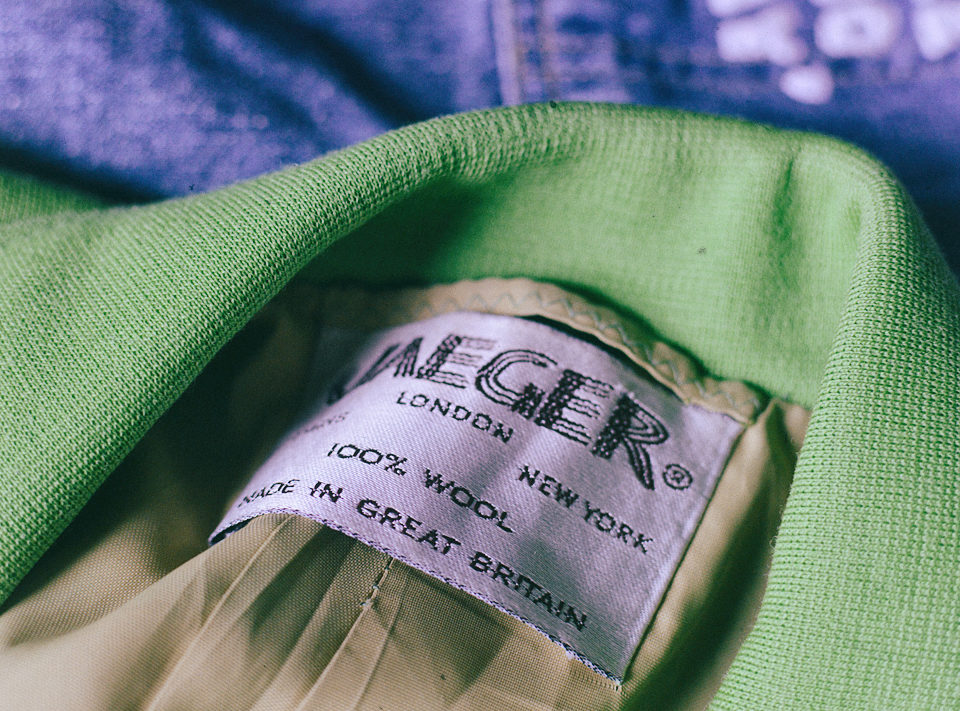
Made in the UK should mean workers are being paid fairly…
There is known evidence that garment workers in the UK (yes, the UK itself, not just overseas) are being underpaid. Leicester is one of the main textile manufacturers in the country, home to 700 factories employing 10,000 textile workers, and under a study by the University of Leicester, it was found that the majority of garment workers in the city, were earning below the National Minimum Wage – this is the attitude towards a known situation onshore, at home.
This one quote from the chairman of the Textile Manufacturer Association of Leicestershire, Saeed Khliji, stood out to me in particular – “None of the retailers are giving us an ethical price. An extra £2 or £2.50 on a garment would sort everything out. Instead they squeeze us for pennies. If they don’t sell everything, they send it back and charge us for the carriage. If we are an hour or 30 minutes late with delivery they fine us £500. I have been told of one retailer who is making £2 million a year from fines.”
The committee urges that HRMC’s National Wage team (which the report states, investigates employers at a rate meaning the average employer can expect an inspection around once every 500 years), is provided with greater resourcing, in order to ensure the ‘Made in UK’ label, actually means what most of us believe it to.

Retailers failing to report and comply with the Modern Slavery Act should be faced with a penalty…
According to the report, the Public Accounts Committee raised the concern that the Government does not monitor whether statements made under the Modern Slavery Act comply with legislation and that it has never used its powers to penalise companies that do not comply.
The Home Office Minister Victoria Atkins MP said, “In terms of companies that have reported: we know that around 60% of businesses that we believe to be within scope have put up statements; 60% of companies in total.”
From my own personal reading of the report, there is an awful lot of uncertainty surrounding the Modern Slavery Act, when it seems as if it should be the bare minimum when it comes to the expectations put upon major brand names.
![]()
The Government should ban incinerating or landfilling unsold stock that can be reused or recycled…
This recommendation is another I would hope the Government would read as a matter of urgency. Lucy Siegle wrote about this topic when the news broke that Burberry was destroying old stock –
“There are 101 processes that go into making a garment, from harvesting plants for raw fibre, to the processing and finishing of textile yarns involving thousands of litres of water. There are hundreds of hours of human labour too. Similarly, high-end cosmetics are a drain on resources in terms of both raw ingredients from the natural world and processing. To input all of these resources and then to squander them by burning (recovering only a tiny proportion of that energy) is pure madness given the backdrop of ecological emergency that we face.”
For anyone curious, Burberry’s 2017/2018 Annual Report stated that the cost of finished goods physically destroyed in the year was £28.6 million (2017: £26.9 million), including £10.4 million of destruction for Beauty inventory.
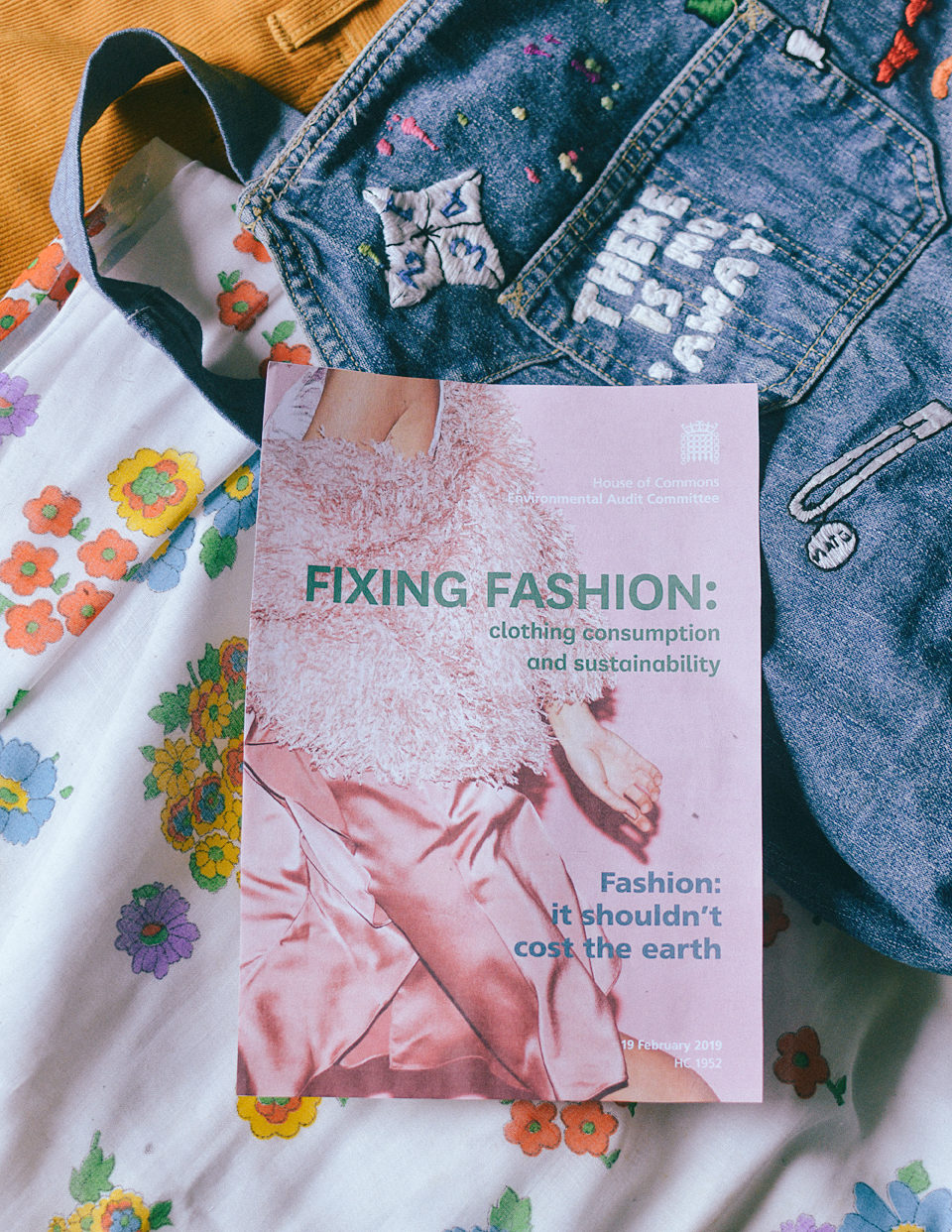
Lessons on designing, creating, mending and repairing clothes should be taught in schools…
I was fortunate enough to go to a school where I experienced using a sewing machine and learning how to thread a needle but for a lot of people, going out and buying a new coat to replace the one you own that’s missing a button, is often the easier option due to this lack of knowledge.
Not only does this recommendation approach the issue surrounding throw-away fashion, but it also approaches the added benefits to a make-do-and-mend attitude being taught from a young age, as crafting is known to be beneficial for mental health and those tackling anxiety.
![]()
An Extended Producer Responsibility scheme for companies that take positive action to reduce waste, should be introduced…
An EPR is a policy where producers are given responsibility for the treatment or disposal of products they put on the market, whether it be financially or physically. An EPR has already been introduced into other countries across Europe, including France.
A charge of one penny per garment could raise around £35 million, which could be invested into better clothing collection and sorting around the UK, diverting a large number of unwanted and unusable clothes from landfill.
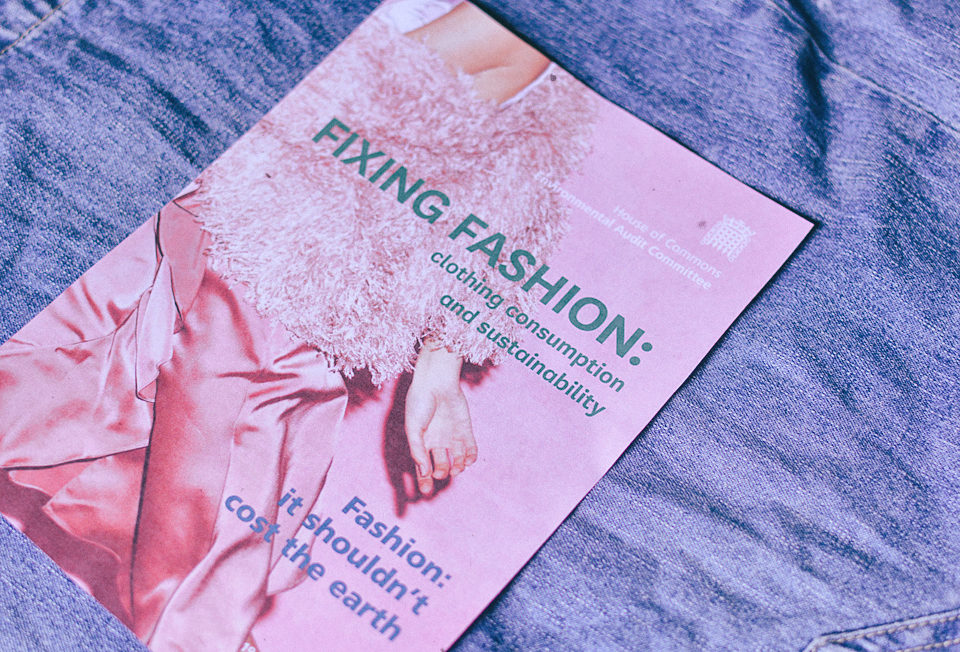
The Government should reduce VAT on repair services…
This is another recommendation which would help slow down the rate at which consumers dispose of clothing, making repair services more accessible, allowing for people to hold onto their clothes for longer and take care of them when wear and tear begins to occur. Sweden has already taken this approach successfully, reducing VAT rates on repairs to bicycles, clothes and shoes from 25% to 12%.
If you’re wondering if there is any way for you to get involved – there is! Fashion Revolution has just released a postcard template you can use to send to your local UK public officials, to ensure they know how important the report is to you and the future of the fashion industry. Click here to download it and print it off.
With time running out and the fashion industry working faster than ever, I would hope that these suggestions would be taken seriously. There are many other points raised that I haven’t even touched upon, so, if you have the time, I would highly recommend reading through the report and seeing what stands out to you the most.
If you could add a recommendation to the Fixing Fashion report, what would it be?







